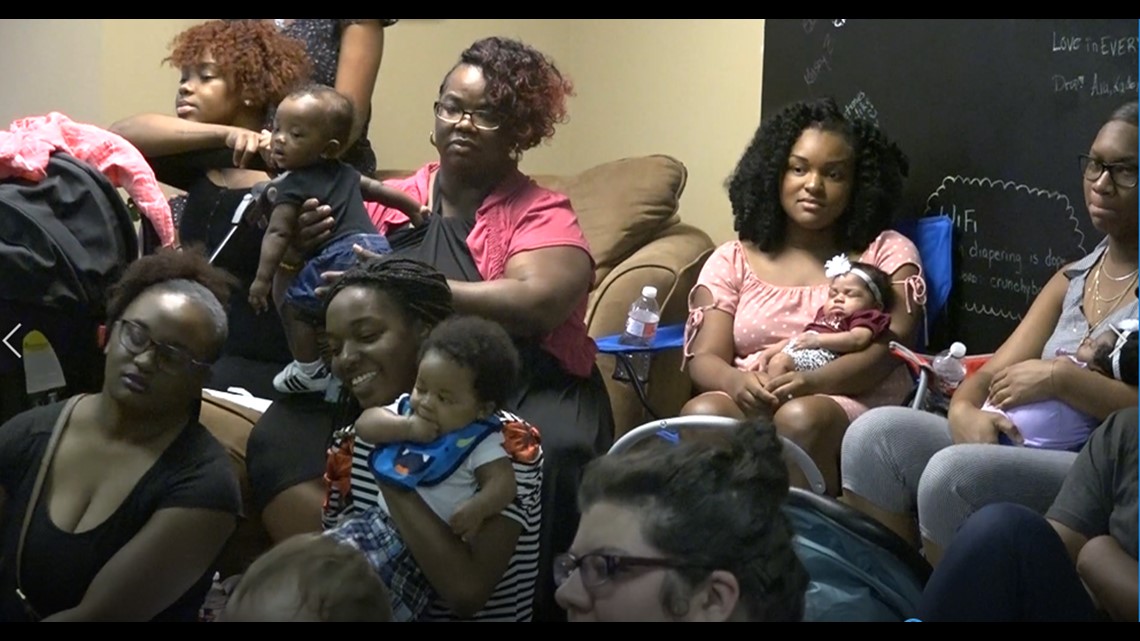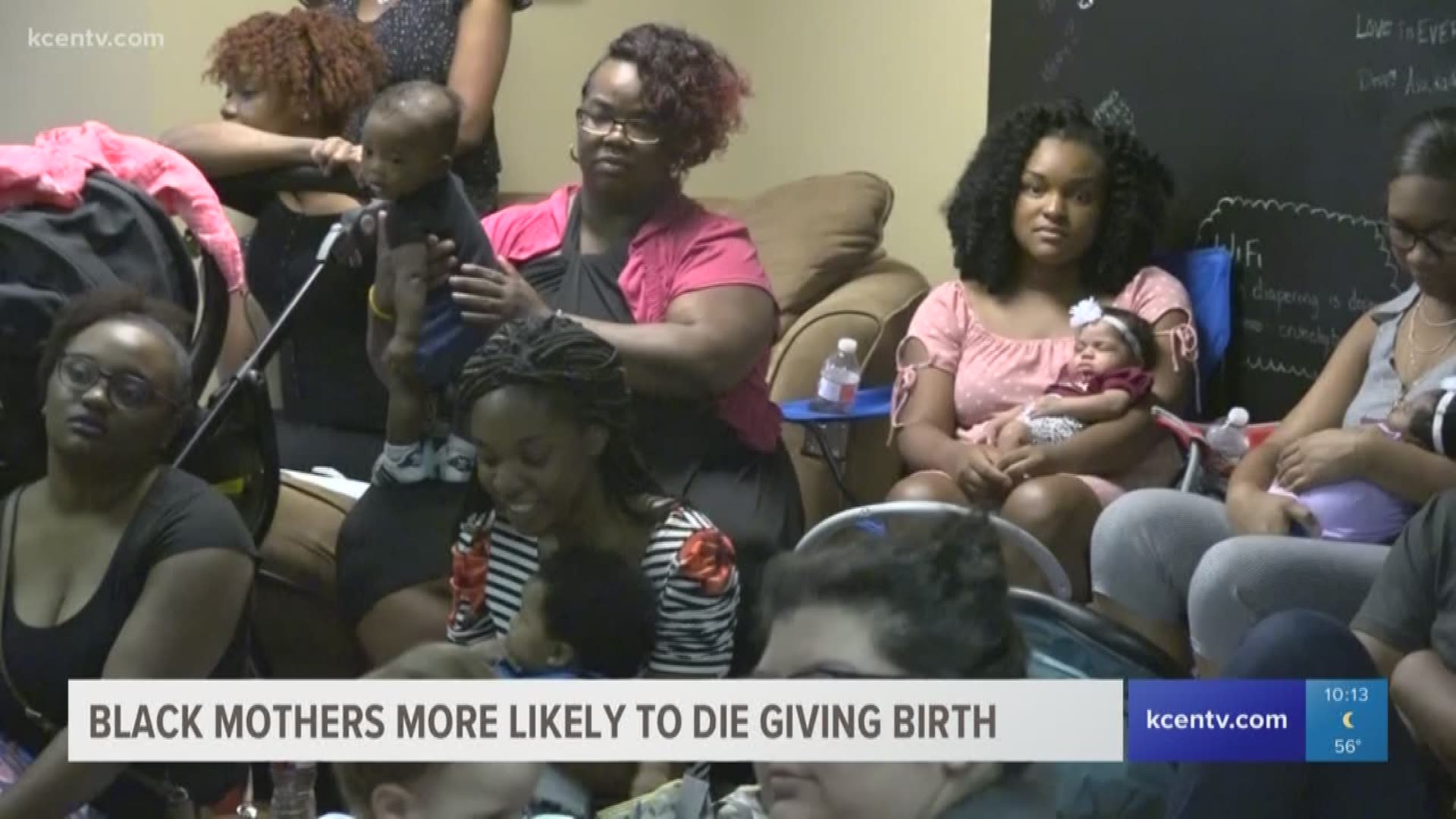WACO, Texas — There's a crisis in the African-American Community that many people may not be aware of. According to newly released statistics, black women in Texas are two times more likely to die or have complications during childbirth than women of other races.
In Texas in 2012, there were 119 confirmed maternal deaths during pregnancy, or within 365 days of delivery.
KCEN Channel 6 spoke to local women who said they are lucky that they even survived to tell their stories. They all said they felt ignored when they told doctors something felt terribly wrong during their pregnancies.
Takenya Battle is a mother of three and a piano instructor who lives in Temple. She said she is still trying to understand how she nearly died giving birth to her youngest child.
"I wasn't ready to go at that point," Battle said. "The fact that I could possibly not be here for the children I have and the one I just had was very upsetting."
Battle said she never had a vaginal delivery. All of her children were delivered by a cesarean section.
"I had the same OB/GYN. He said, 'once a C-section always a C-section,'" Battle said. "So, I went by what the professionals said."
Due to complications from the first two C-sections, Battle's doctor said she had to have an emergency C-section to deliver her third child.
"The first incision that they made into my uterus ruptured like a volcano," Battle said.
She said she's lucky to be alive, but wishes her birthing experience could have been a lot smoother.
"I was afraid that I might not leave the hospital," Battle said. "I might be going somewhere else that I never intended on going at that particular time."
Battle's story is just one of many. In September, the Texas Maternal Mortality and Morbidity Task Force and Department of State Health Services released their 2018 Maternal Mortality Report. According to the report, black women were affected by pregnancy-related death more than any other race or ethnicity. The pregnancy-related mortality rate for black women was 2.3 times higher than any other race and it has nothing to do with income, education or marital status, according to the report.
"And that's what's so crazy about it. It seems as if no one knows about it. This is an epidemic. This is a true epidemic that's just been going on. The quietest epidemic that you'll ever know of," said Lauren Cain, co-owner of the Crunchy Boutique in Arlington.
Cain and her mother open their doors for monthly meet-ups where moms can discuss topics such as breastfeeding and natural parenting.


"It wasn't until about a year and a half ago when we opened this store that we connected with more moms and were hearing more stories and it's like, 'huh? What happened to you in the hospital? That's very similar to what happened to me,'" Cain said.
She said during her pregnancy she wanted to have an at home water birth, but at 34-weeks she began to bleed continuously, and her body seemed as if it was ready to go into labor.
"They told me, 'you're fine. Your baby is fine. There's nothing we can do for you. You can go home,'" Cain said.
At 40-weeks, a doctor finally told her she had a placental abruption due to what’s called placenta previa, which is when the placenta is trying to detach itself from the uterus.
"That's what had been happening all those weeks. That's why I kept having bleeding and it was all right there in the information that every doctor had looked at, but I was being pushed off every time," Cain said.
Cain was given a few options: to have the baby now or risk death, and to choose between a C-section or blood transfusion.
"They allowed me to bleed at the hospital for hours and hours. There was blood on the bed, blood on the walls, blood on the floor. It looked like a crime scene," Cain said.
The Texas Maternal Mortality and Morbidity Task Force determined that there was at least some chance for preventability in almost 80 percent of pregnancy-related issues.
Robyn Brown said she doesn't even remember giving birth.
"I woke up and they told me, 'wait don't move that fast because you have a five-pound hot sandbag trying to keep your organs in place before they bust through the incision,'” Brown said. "I don't even think it should have gotten that far."
Brown said her birth canal narrowed and they had to rush to get the baby out.
"My son could have been raised by my husband by himself. I would have never even been able to tell you what I went through," Brown said.
All three women agree that the loss of one mom is one too many and hopes to send a message to expectant mothers.
"Trust yourself and be an advocate for yourself,” Cain said. Nobody knows your body better than you do. Time and time again they brushed me off, and time and time again they saw me at the hospital telling them that something is wrong."
Next week KCEN Channel 6 will speak to The Texas Department of State Health Services about ways to improve health outcomes for black women.
KCEN Channel 6 will also speak to a child birthing doula and educator who says Texas black women are not receiving culturally competent care which is creating a disconnect between them and their medical providers.
►PREVIOUS CHAPTER: Why childbirth is a death sentence for many black moms

